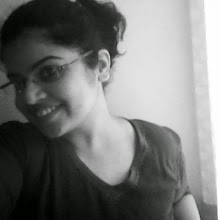Bargaining is elevated to a fine art in Delhi. If you're a student, living - as most students do - on a shoestring budget, especially, it is an art you want to perfect - or keep working at, at the very least. I should know! Rick rides, auto rides, book-buying sprees at Daryaganj, visits to Sarojini Nagar and Janpath, the fruit vendor in Kamla Nagar, the coolies at NDLS...before I left home for College and Delhi, the closest I had come to understanding the concept of bargaining in real life was in Premchand's short story, Idgaah. Hamid, the young protagonist, visits the annual Id fair with only three paise in his pocket, and spots a pair of tongs that he thinks his grandmother will like. He steps up and enquires how much the tongs cost, and the seller curtly replies "Chheh paise". What happens next is best quoted from the story itself: "हामिद ने गहरी साँस ली और कहा, "तीन पैसे में दोगे?" और कहकर आगे बढ़ गया, की दूकानदार उसे घुड़कियाँ न सुना दे। लेकिन दूकानदार ने घुड़कियाँ नहीं दी। बुलाकर चिमटा दे दिया।"
So that's what bargaining is, I used to think. Halve the price. That's it. Ha! That simple!
I was right. And wrong.
Soon after I arrived in Delhi, I learnt that unless one developed the ability to bring the price for certain goods and services (can't help the terminology - 5 years of economics! :) down to at least four-fifths of the quoted, one was liable to end up squandering half one's monthly allowance on rick rides and the odd half-kg of apples or bananas. In a few months' time, I also learnt that it was plain silly to pay the bookseller at Daryaganj Rs 150 for a slim paperback, and sillier still to pay anything more than two-fifths that amount for a t-shirt at Sarojini Nagar. And by allowing the driver of an auto-rickshaw to charge you as much as he quoted at the very beginning, you were allowing him to take you for a ride, pun fully intended (one way to avoid that was to go by the meter...but then meters have an unfortunate disadvantage: either they don't work, or, if they do, they're usually rigged. Besides, rare is the auto-driver who will concede that he ought to be going "by the meter", in the first place ).
When I managed rick-rides for Rs 12, auto-rides to CP (the Metro hadn't quite come into being back then) for Rs 70, and visits to Janpath or Nai Sarak in Rs 600, I felt pleased with myself. I had mastered the art!
Until someone showed me similar stuff, bought from the same place, at two-thirds the price. Or grinned patronisingly when they learnt that I paid fifteen bucks for a ride from College to Gwyer Hall.
Essentially, it takes one time to learn exactly how much the good or the service should actually cost. It makes sense to pay Rs 80 to get to India Gate, and if you tried beating it down to 40, you'd be plain unreasonable (unless you were in luck, and the driver himself asked for only that much!); similarly, it is plain inhuman to expect a rickwallah to take you all the way from, say, Malkaganj to Miranda House for only Rs 10. Again, why shouldn't the guy selling books secondhand, or trinkets and shawls, expect to make a small profit on his sales? It works this way: you do some accommodating, and he does some accommodating, and in the end we're all happy.
But it is interesting, this process. What you need, of course, is tons of patience, polite albeit firm language - and a sense of humour. It's easy enough: hear the price, and depending on where you are or who you're talking to, slash it right away by 15-50%. Nobody actually does all that mental arithmetic, naturally...the right price simply comes to you! Deduct a little something from what you think you ought to pay, and then declare that that is all you are willing to shell out. The entertaining bit is, the seller himself has added an extra something to what he actually wouldn't mind receiving - and then you can both start trying to get the other to meet you halfway :)
At Daryaganj, especially, booksellers have this special line for you - "Hai to itne ka, par aapke liye bees rupaye kam kar deta hoon". Harbour no illusions, this privilege is something he extends to all his customers. The transaction is usually consummated with "Chaliye na aapka na mera, (some amount) de dijiye", again, from the seller. You, in your turn, can choose to use the age-old technique: quote your final price, and, if he says no, turn up your nose and walk away as if you couldn't care less for the book or the rick-ride, or whatever is in question. Unless the seller is a very hard nut to crack, this usually brings the discussion right back onto the table!
At the end of the day, bargaining in Delhi can be a hassle, entertainment, or simply the carrying out of a necessity, depending upon how you choose to see it. I know people who relish the idea of a trip to Nai Sarak or Sarojini Nagar for the opportunities to bargain that it affords - it is, they claim, the ideal way to spend a winter afternoon, and a great chance to observe fellow human beings at their wittiest, most obstinate best. One does feel jubilant heading home with 15 great books, spanning everything from economics to fiction to crosswords, when one left one's room with only Rs 400 in one's pocket...this I can vouch for :)

3 comments:
insightful!
thanks...experience tends to grant one some insight, i guess :)
You should write a travelogue! It's fun. I enjoyed this thoroughly.
Post a Comment